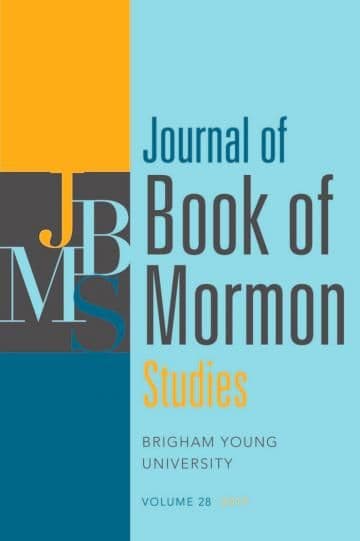Journal
Becoming Sons and Daughters at God’s Right Hand: King Benjamin’s Rhetorical Wordplay on His Own Name

Title
Becoming Sons and Daughters at God’s Right Hand: King Benjamin’s Rhetorical Wordplay on His Own Name
Publication Type
Journal Article
Year of Publication
2012
Authors
Bowen, Matthew L. (Primary)
Journal
Journal of Book of Mormon Studies
Pagination
2-13
Volume
21
Issue
2
Abstract
Royal sonship is a key theme of Mosiah 1–6, including King Benjamin’s seminal address at the temple in Zarahemla (Mosiah 2–5) on the occasion of his son Mosiah’s enthronement. Benjamin, however, caps this covenant sermon, not with an assertion of his son’s royal status and privileges, but with a radical declaration of his people’s royal rebirth (or adoption) as “the children of Christ, his sons and his daughters” (Mosiah 5:7) and their potential enthronement at God’s “right hand” (5:9). Similar to rhetorical wordplay involving proper names found in the Bible, the Book of Mormon, and other ancient texts, Benjamin’s juxtaposition of “sons”/“daughters” and the “right hand” constitutes a deliberate wordplay on his own name, traditionally taken to mean “son of the right hand.” The name of Christ, rather than Benjamin’s own name, is given to all his people as a new name—a “throne” name. However, he warns them against refusing to take upon them this throne name and thus being found “on the left hand of God” (5:10), a warning that also constitutes an allusion to his name. Benjamin’s ultimate hope is for his people’s royal, divine sonship/daughterhood to be eternally “sealed.”
Subject Keywords
Bibliographic Citation
Terms of use
Items in the BMC Archive are made publicly available for non-commercial, private use. Inclusion within the BMC Archive does not imply endorsement. Items do not represent the official views of The Church of Jesus Christ of Latter-day Saints or of Book of Mormon Central.